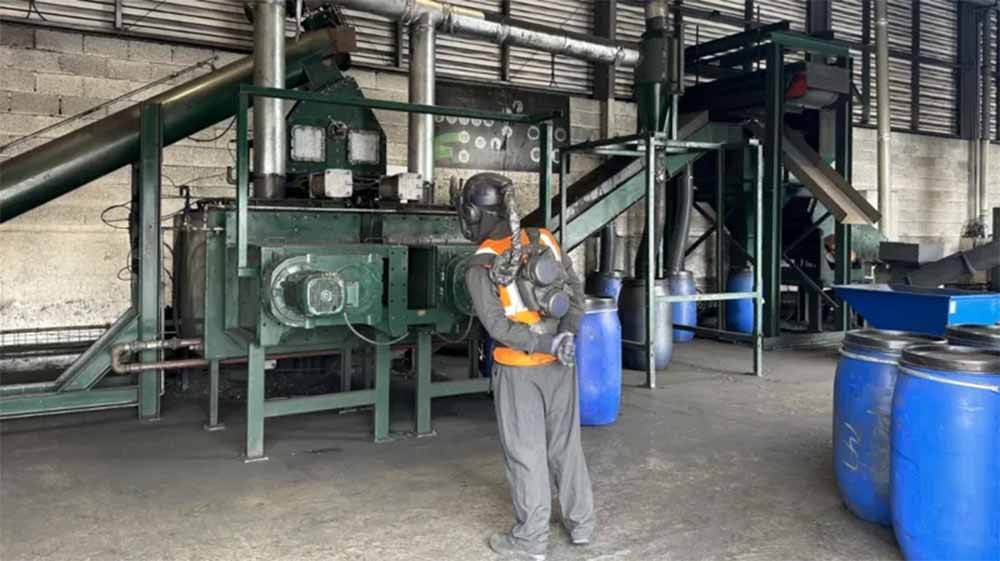Mining has returned to the Black Country, but with a very 21st Century twist.
The method, called urban mining, is the recycling and recovering of essential elements, including those from lithium ion rechargeable batteries.
Today, so much of our technology – from vapes to mobiles to electric cars – use these types of rechargeable batteries.
But if you’ve ever had to throw one away, you might have come across the problem of what you can do with them, mindful of the stickers asking you not to put them in a bin.
That’s because when a lithium ion battery is punctured or damaged, there is a chance it might explode and start a fire.
If put in household bin, the bin collection lorry might crush them with disastrous results. So what can you do with these batteries?
LiBatt Recycling, based in Wolverhampton, has found a way to shred and then recycle the lithium ion batteries without any of the explosions that would usually entail.
“People have been stockpiling them, and there has been some capacity elsewhere in the world for recycling. But we are now the first UK company to be able to recycle them,” Dr Anton Zorin from LiBatt Recycling, said.
The trick is to shred the batteries in a nitrogen gas atmosphere, Robin Brundle, who also works at LiBatt, explains.
“That then stops the fire and explosion, and it enables us then to recover everything that goes in the front end.
“We recover it all at the back end, in one form or another, and zero to landfill”
Once the batteries have been safely shredded, standard recycling tech enables the copper, aluminium and plastic to be sorted and reclaimed.
This also produces a fine powder called black mass, a mix of cobalt, nickel, manganese and lithium, which goes oversees and is then used to make new batteries in China.
“But, recycling as we do could produce around 42% of the UK’s needs for these raw materials”, Mr Brundle explained.
It means rather than rely on oversees mining and production for batteries, we could actually make them in this country.
Libatt Recyling is now working with a larger consortium of companies and institutions in the West Midlands to close the lithium ion battery loop and increase recycling and, eventually, production of home grown batteries.
(BBC)
Wednesday, February 25, 2026

